Suppressor FAQs
Are suppressors legal in the United States?
Suppressors are legal in most states but are regulated by Federal and State law. The Bureau of Alcohol, Tobacco, Firearms, and Explosives (BATFE) has rules and regulations for legal ownership.
In what states are suppressors legal?
Currently, the following states allow private ownership of suppressors with appropriate federal tax stamps:
AL, AK, AZ, AR, CO, CT, FL, GA, ID, IN, IA, KS, KY, LA, ME, MD, MI, MN, MS, MO, MT, NE, NV, NH, NM, NC, ND, OH, OK, OR, PA, SC, SD, TN, TX, UT, VT, VA, WA, WV, WI, WY.
If you live in one of these states, you should still verify that owning a suppressor is legal in your area as local laws are subject to change.
What states/locations are not suppressor friendly?
CA, DE, HI, IL, MA, NY, NJ, and RI have banned the civilian ownership of suppressors. Washington DC does not allow the civilian ownership of suppressors.
Do I need a special license to own a suppressor?
No. You do not need to have a license to buy a suppressor. The only requirement is buying a tax stamp with the initial purchase. There are no more fees or permits needed for your silencers after you buy them!
What are the benefits of owning a suppressor?
Silencers reduce noise pollution and help prevent hearing damage. Silencers also reduce recoil, almost eliminate muzzle flash, and improve accuracy.
How much sound will be reduced with a suppressor?
Suppressors typically reduce the sound as much as or better than traditional hearing protection like ear plugs and muffs.
Should I still wear hearing protection with a suppressor?
Yes. You should always wear hearing protection when shooting firearms. While some say it is optional, it is recommended to use hearing protection to avoid hearing loss.
Why are YHM suppressors less expensive than other companies?
YHM performs all of the design, research, development, manufacture, and assembly of all of our suppressors. This allows us to design the suppressor to be manufacturing-friendly, which reduces the cost of making the suppressor.
How do I buy a YHM suppressor?
A Class 3 dealer in your state of residence will handle all of the final paperwork and payment for the suppressor. You can also check out some of our partners for other ordering and delivery options like Silencer Shop and Capitol Army.
How long will it take to get my suppressor?
ATF wait times can vary wildly from year to year or even month to month. Please call our sales staff for up-to-date average wait times.
What is the difference between a suppressor and a silencer?
Suppressor and Silencer are interchangeable terms and mean the same thing. “Suppressor” is more technically accurate as a suppressed firearm isn’t silent, it just has a lower report. “Silencer” is how Hiram Percy Maxim referred to his new invention in his patent and is the legal term adopted by the U.S. Government.
Can the same suppressor be used for multiple calibers?
Most suppressors can accommodate SMALLER rounds than their caliber designation. For example, .22 caliber ammunition is safe to shoot through a .30 caliber suppressor. There are exceptions to this rule. For example, it is NOT safe to shoot .22 caliber centerfire rifle rounds through suppressors rated for 9mm Parabellum. If you have questions or doubts, please call our sales staff.
How do I install a suppressor on my firearm?
The most common is a Q.D. (quick disconnect) mount. Other mounting options include direct thread mounts, 3 lug mounts, and pistol/booster mounts. YHM offers a variety of mounting options including Q.D. flash hiders and muzzle brakes. Here is an instructional video showing how our Q.D. mounts work!
